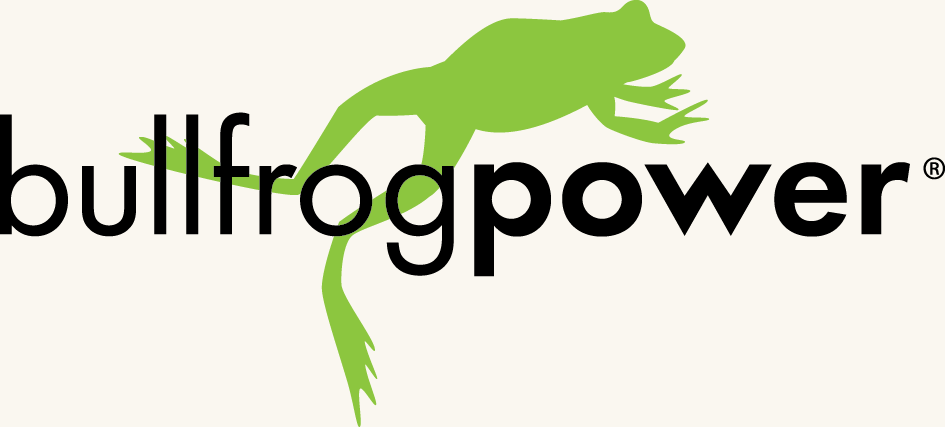Reducing our carbon footprint is something we believe in.
The Organic Box cares deeply about this planet, which is why we are 100% committed to working under a sustainable business model and providing environmental leadership within our local food community.
Decreasing our environmental impact is a continuous process we tirelessly pursue. We have defined several areas where we are actively working to reduce our carbon footprint and be a more sustainable business.
Key Initiatives
Upgrade our high efficiency warehouse.
Our current space is raw and provides an opportunity to think much deeper about energy-efficient strategies and design.
Switch the heating and cooling infrastructure on our BC farm from oil and solid-fuel to natural gas and efficient electric options.
In 2012, we converted the farmhouse and barn to natural gas heating. A new compressor and evaporators were installed in the barn fruit cooler to reduce power consumption in the summer and in 2013, the outbuildings were converted to improve insulation, windows and energy efficiency.
Decrease how often we receive transported goods through strict inventory management and transport planning.
In 2013, we purchased our own heavy truck to make point-to-point trips of full loads from our BC farm. In February 2014, we moved to a single full truck leaving Vancouver every week with our imported products. This significantly reduced the number of small trips made by trucks to and from our warehouse every week.
Use our vision of sustainability to align The Organic Box team through informed workplace habits.
Keeping cooler doors closed, switching off lights, making fewer delivery trips and turning off the vans when they are not loaded, all make a positive difference to our footprint. Our team members practice these workplace habits every day to reinforce our commitment to sustainability.
Completed Initiatives
Provide a paperless option for our recipes and updates with an online newsletter.
Since the summer of 2012, customers have had the option of choosing an email newsletter rather than receiving a paper copy in their box.
Switch to Step Forward ultra-low emission paper.
Accomplished in mid-2013, Step Forward paper is 80% wheat straw, 20% FSC Fiber and is chlorine free. In 2014, we changed our paper provider to a local paper producer named 'Grey's Paper' to stay aligned to our dedication to the local economy.
Use route planning software and GPS tracking to optimize route planning for our delivery vans.
We continuously improve our route planning systems for efficient fuel use. In the winter of 2012, we upgraded to a new route planning platform and software package that is fully integrated with our website and our delivery van fleet.
Bullfrog Power

We are bullfrog powered® with 100% green electricity and natural gas. Just in 2013 alone, we offset 50.28 tonnes of carbon via the Bullfrog Power program, which helped decrease our net emissions total to 337.75 CO2e.
Bullfrog Power’s producers inject green electricity and green natural gas into the respective energy systems to match the amount of electricity and natural gas our company uses. Instead of higher polluting sources like coal and natural gas Bullfrog’s electricity in Alberta comes exclusively from wind facilities that have been certified as low impact by Environment Canada under its EcoLogoTM program. A clean, renewable alternative to fossil fuel-based natural gas, Bullfrog’s green natural gas is produced in Canada from biogas facilities that have met strict environmental criteria as defined by ICF International.
By choosing green energy, we are reducing The Organic Box’s impact on the environment, supporting the development of new renewable generation in Canada and helping to create a cleaner world.
Pipestone Creek Project
In 2015, The Organic Box partnered with the Pipestone Creek project to help preserve and protect land and carbon stored in the growing trees in Wetaskiwin County. The Project has been underway since 2012, and is helping preserve numerous vegetation community types and dry grassland slopes that feature plants not commonly found in the northern Alberta region.
The area is also home to a variety of wildlife who rely on their habitat for survival. The Project helps secure the area so wildlife can remain, and also helps conserve a healthy water supply. So far, the Pipeline Creek project has helped plant over 31,000 trees and shrubs to restore wildlife habitat, and has installed fences and gates to prevent damage from off highway vehicles.
The Organic Box is hopeful that our role in the project will provide a positive environmental outcome that also allows us to share our stewardship activities with our community.
Offsetters
In 2013, we invested in the Great Bear Forest Carbon Project, located on the North and Central Coast, BC—home to the largest intact coastal temperate rainforest remaining in the world. The Great Bear Forest Carbon Project is an Improved Forest Management project, which generates emission reductions by protecting forest areas that were previously designated, sanctioned or approved for commercial logging.
The Project protects and increases carbon stocks by converting forests that were previously available for logging to protected forests, and reduces emissions caused by harvesting, road building and other forestry operations. It is a landmark project for balancing human wellbeing and ecological integrity, and is the first carbon project in North America on traditional territory with unextinguished aboriginal rights and title.
